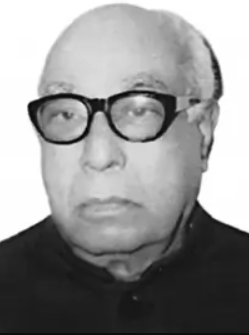Shajeda Akter
Ataur Rahman Khan: A Visionary Statesman in Bangladesh’s Political History Bangladesh has been shaped by leaders who dedicated their lives to democracy, governance, and the service of the people. Among these figures, Ataur Rahman Khan (আতাউর রহমান খান) stands out as a respected statesman, parliamentarian, and Prime Minister of Bangladesh whose political journey reflected integrity, resilience, and an unwavering commitment to the ideals of democracy. Early Life and Political Involvement Ataur Rahman Khan was born in 1905 in Kishoreganj. From a young age, he was drawn to politics, inspired by the movement for independence and social justice. He studied law and quickly became involved in political activism, positioning himself as a strong advocate for the people of East Bengal. His leadership qualities emerged early as he became active in movements against colonial rule and later against authoritarian practices in Pakistan. He was one of the leading figures of the United Front in 1954, which achieved a landslide victory, challenging the dominance of the ruling elite in Pakistan. Prime Minister of Bangladesh Ataur Rahman Khan served as the Prime Minister of Bangladesh (30 March 1984 – 9 July 1986) under the presidency of Hussain Muhammad Ershad. Despite the turbulent political climate, he maintained his reputation as a man of principles, working for administrative stability and seeking to preserve democratic traditions. As Prime Minister, he focused on: Administrative Reforms: Bringing efficiency to governance at a time of political instability. Rule of Law: Advocating for constitutional governance and parliamentary accountability. Public Service: Remaining accessible to the people and vocal on issues affecting the masses. Democratic Legacy Throughout his career, Ataur Rahman Khan was associated with democratic struggles and opposition politics. He served as a member of parliament multiple times and remained active in the Bangladesh Nationalist Party (BNP). Despite the shifting political dynamics of the country, he earned respect across party lines for his simplicity, honesty, and dedication. Unlike many of his contemporaries, he was remembered for his personal integrity, which set him apart as a leader of rare character. Contribution to National Politics Ataur Rahman Khan’s legacy is not limited to his premiership but extends to his lifelong role in shaping political consciousness in Bangladesh. He: Supported multi-party democracy during times of authoritarianism. Played a key role in grassroots mobilisation during the Pakistan era. Inspired a generation of leaders through his steadfastness and personal conduct. Recognition and Respect While he may not have enjoyed the same mass popularity as some other leaders of his era, Ataur Rahman Khan is remembered as a gentleman politician, someone who valued ethics over opportunism. His life’s work deserves recognition for contributing to the political maturity of Bangladesh. Conclusion Ataur Rahman Khan’s life and political career remind us that leadership is not only about power but about principles, humility, and service to the nation. On platforms such as GovernmentAward.com, his name stands as a shining example of how dedication to democracy and honesty in public life form the foundation of a lasting legacy.
